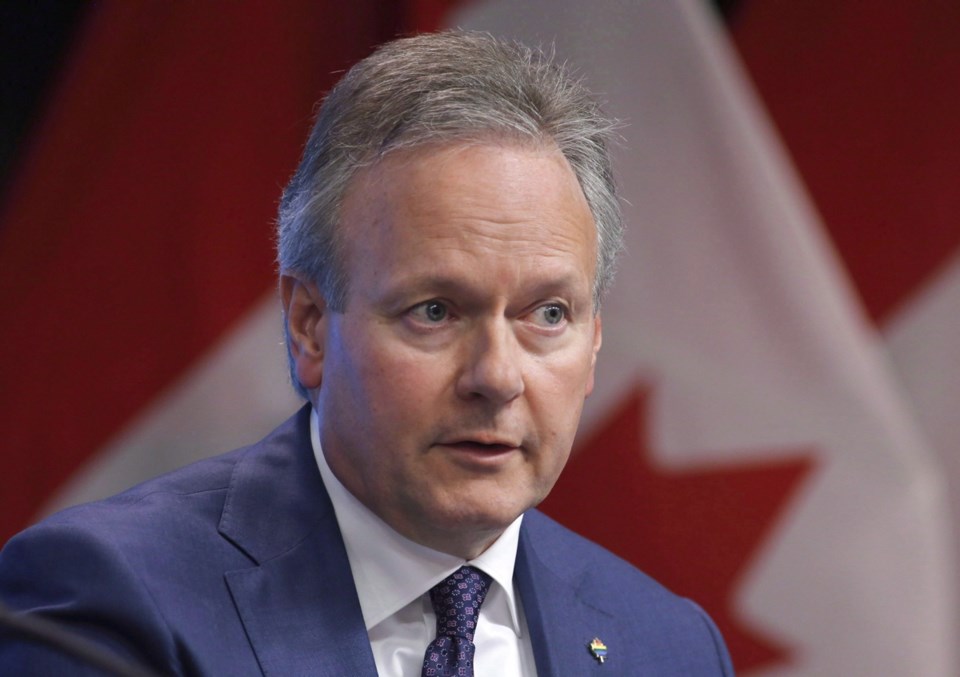In yet another of his counterproductive media appearances, Bank of Canada Governor Stephen Poloz has announced that our economy will expand at a slower rate than he forecast previously. Specifically, the new growth rate is 1.2 per cent, down from his previous guesstimate of 1.7 per cent.
I call his frequent musings counterproductive, because it seems all too often, when he opens his mouth, he does more harm than good.
Over the past 30 months, Poloz has given 35 speeches. Some of these admittedly were obligatory, such as presentations to parliamentary committees.
But just as often he is simply ruminating, and frequently not in a helpful manner. Some examples of his speech titles: “Turbulent Times for Trade,” “Financial Vulnerabilities in Focus” and “Three Things Keeping Me Awake at Night.”
The latest announcement was a classic of this sort. He began by scaring the business sector with visions of a slowdown.
Then he turned around 180 degrees and allowed that the economy might be fine after all, in which case he predicted more interest-rate increases. I’m sure that will help things along.
Next he blamed the lower growth forecast on a bad winter, fears over trade wars and the Ontario budget, which cut that province’s deficit. I have news for Poloz.
First off, it’s the monumental deficits being run by the federal government and provinces such as Ontario that frighten companies into tamping down investment. Reducing debt loads helps, not hurts.
Second, a leading cause of our weak economic performance is Poloz himself. Over the past two years, he raised interest rates five times, from a low of 0.5 per cent in 2017, to the current benchmark of 1.75 per cent.
What was the need for this? There was none. Inflation wasn’t running rampant.
But if you want to kill economic growth and trash the stock market, that’s how to do it.
Last year, when Poloz nearly doubled rates, the Canadian stock market fell 11.6 per cent, the worst collapse in years. Not coincidentally, the American stock market also tanked in 2017, as the U.S. Fed hiked rates.
The reason we’re seeing both markets rebound is that central banks have sworn off any more increases, at least for the present.
As for blaming the slowdown on bad weather and trade wars, America experienced both, yet that country is booming. The economy expanded at a rate of 3.2 per cent in the first quarter of 2019, and unemployment stands at 3.8 per cent (our rate is 5.8 per cent.)
Why the difference? Because the U.S. federal government has cut taxes and slashed regulations.
And Canada? The opposite. The B.C. government has raised business taxes, hiked the carbon tax and soaked the typical family to the tune of $1,000 a year.
The new provincial speculation and vacancy tax forces every homeowner in major cities to file an annual exemption. And if there are joint owners — say a husband and wife — then each must fill in separate forms. Yet by the government’s own admission, 99 per cent of these people are guilty of nothing — a complete waste of their time.
Then again, new design and construction standards for housing have been issued that run to a massive 379 pages. This is regulation run riot.
Meanwhile, the federal government is imposing a carbon tax of its own, ignoring deep resentment (and accompanying lawsuits) in several provinces.
All of this, and more, is a recipe for stagnation, if not actual recession.
So here is the message for Poloz. Stay out of the news, especially if you have nothing good to say.
Take a page out of Mark Carney’s book — your predecessor who went on to become governor of the Bank of England. Carney knew exactly how to handle difficult situations without sending conflicting and scary signals.
Cut the interest rate in half, and stop speculating about hypothetical future increases. If the time comes when a hike is, in fact, needed, that is the moment for action. Navel-gazing months in advance accomplishes nothing of value.



